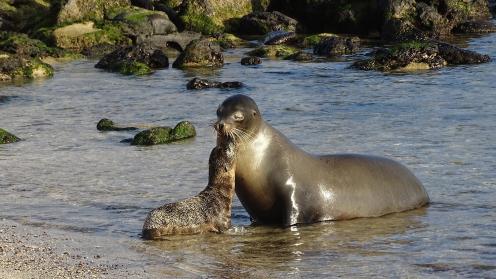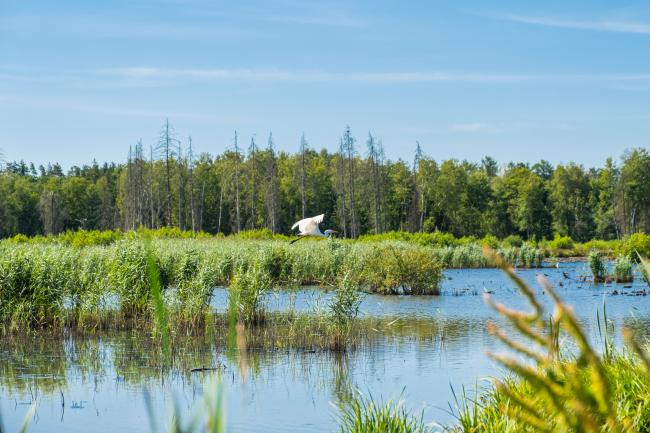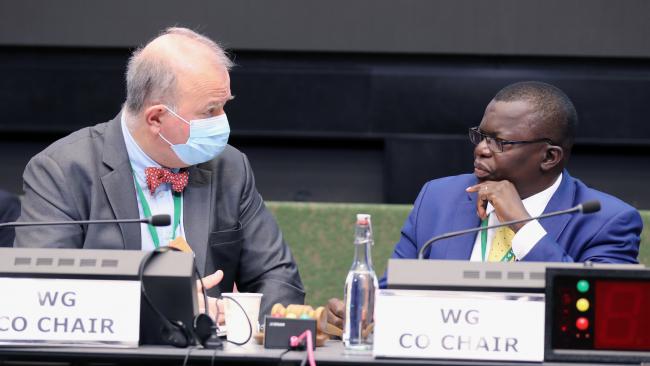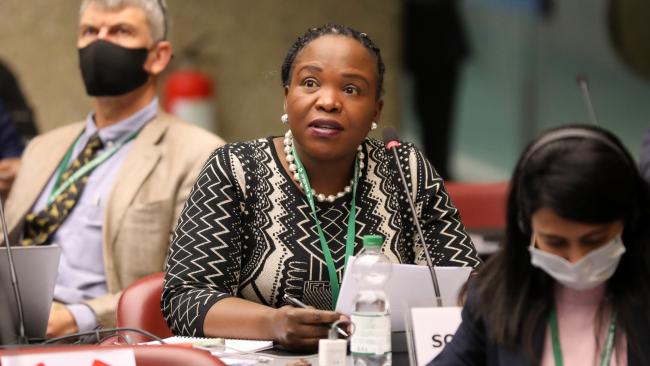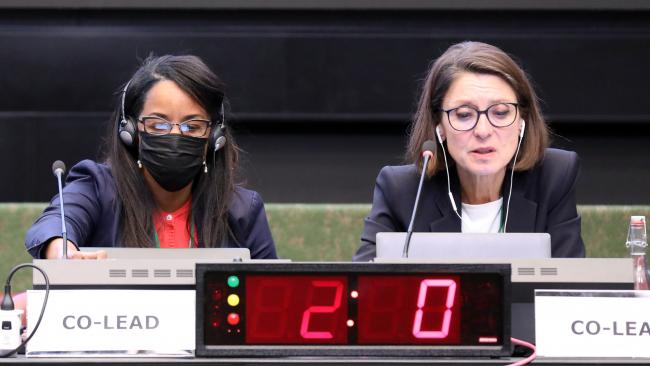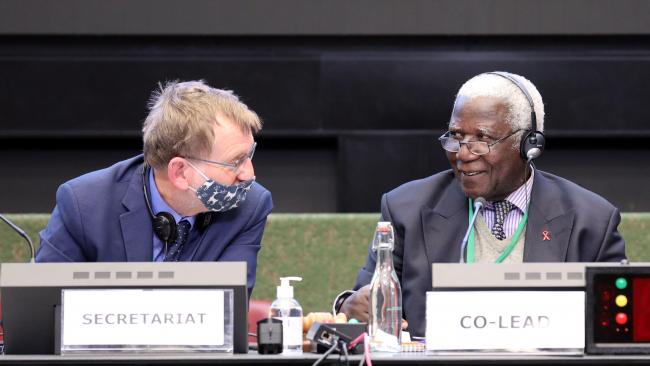Following a Sunday off, delegates returned rejuvenated to the Geneva Biodiversity Conference, ready for nine days of non-stop negotiations: a marathon, in terms of multilateral environmental negotiations. This is necessary, as multiple puzzle pieces of the post-2020 global biodiversity framework (GBF) still need to find their place. The subsidiary bodies will also need to finalize deliberations, forwarding concrete recommendations to COP-15, with limited bracketed text. Although the meeting’s end is still distant, the countdown has started.
To dive deeper, read the full Earth Negotiations Bulletin daily report.
In the morning, the Working Group on the GBF (WG2020) held a plenary session to address one of the most controversial items in the agenda, digital sequence information (DSI). WG2020 Co-Chair Francis Ogwal (Uganda) opened the session on a day which marks the International Day for the Elimination of Racial Discrimination and the International Day of Forests. Lactitia Tshitwamulomoni (South Africa), Co-Lead of the informal advisory group on DSI, highlighted a proposed multi-criteria analysis and a performance matrix. These would guide the development of an analytical framework and assess different policy options, including qualitative and quantitative benefits.
Initial reflections from parties revealed an expected divergence of views on DSI. The African Group suggested the creation of a global multilateral benefit-sharing mechanism under the Convention, collecting 1% levy on retail prices of all biodiversity-related products to support on-the-ground biodiversity conservation. The Asia-Pacific Group noted that the issue is “still at an infancy stage,” cautioning against drawing conclusions hastily. The EU stressed that exploration of policy options is still at the preliminary stage, calling for a solid independent assessment prior to taking any DSI-related decision. The Latin American and Caribbean Group (GRULAC) highlighted the sovereign rights of countries over their genetic resources and the intrinsic relationship between DSI and genetic resources.
Diverging opinions varied significantly: some stressed that failure to include DSI is a deal-breaker for the GBF, while others argued that DSI does not fall under the scope of the Convention or the Nagoya Protocol. The discussions in the relevant contact group will be of utmost importance, but difficult negotiations are expected.
In the afternoon, a WG2020 contact group resumed considerations of the GBF targets focusing on meeting people’s needs through sustainable use and benefit-sharing. Delegates addressed two targets on:
- ensuring the sustainable management and use of wild species to enhance benefits such as food and water security for people, especially those in vulnerable situations, while safeguarding customary sustainable use by Indigenous Peoples and local communities; and
- ensuring that all areas under agriculture, aquaculture, fisheries, forestry and other productive uses are managed sustainably, in particular through the conservation and sustainable use of biodiversity, contributing to the efficiency and resilience of these production systems.
Five side events took place at lunchtime, focusing on:
- mapping nature for transformative planning, implementation, and monitoring of the GBF;
- monitoring progress of protected area governance, equity, and rights;
- technical and scientific aspects of DSI use and benefit-sharing;
- biodiversity as a building block for healthier and more resilient food systems; and
- institutional and operational options of anchoring non-state action within the GBF and its further implementation.
To receive free coverage of global environmental events delivered to your inbox, subscribe to the ENB Update newsletter.
